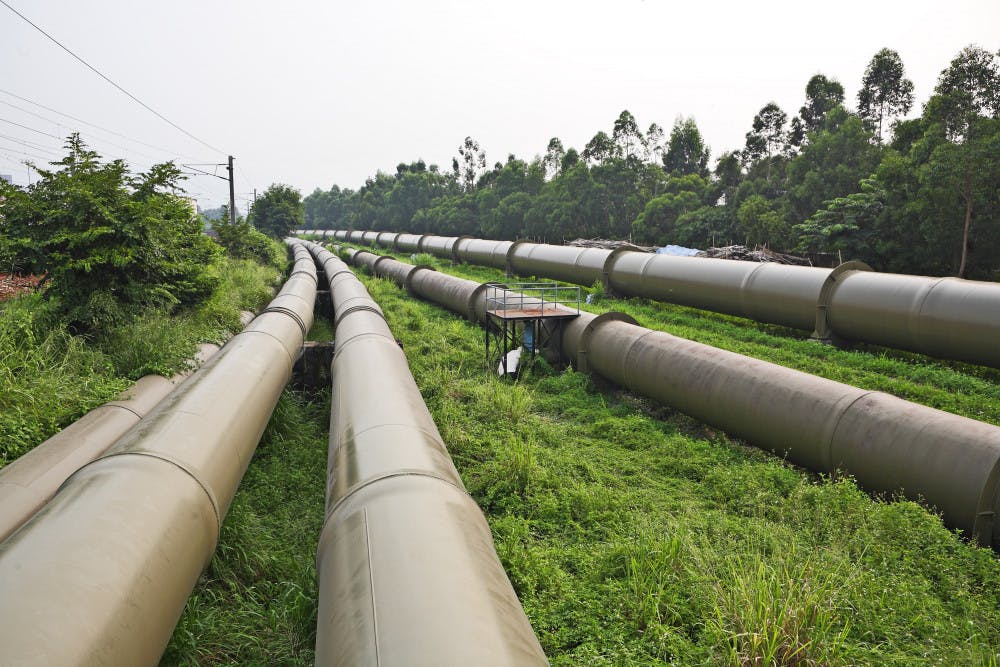By Gianna Melillo
President Barack Obama’s recent rejection of the Keystone XL Pipeline construction is a decision that is sure to foster support among environmentally conscious Americans. The proposed 1,179-mile pipeline would have brought 800,000 barrels a day of “carbon-heavy petroleum” from oil sands in Canada to the Gulf Coast, according to the New York Times.
The decision came after a seven-year review of the project, which has sparked debate among those in favor of and against constructing the pipeline. This type of action on climate policy is seen as a step in the right direction, though instances such as this are far too infrequent to appease those who want to see more done politically for the environment.
For the environmentally conscientious American, advocating for climate change policy is just as important as reducing one’s carbon footprint and living a green lifestyle. In a country that is commended worldwide for its model democracy, it could be assumed that the citizens’ best interests would be considered when the government implements new policies.
However, this could not be further from the truth when it comes to the lack of policies that reflect the interests of the environmentally friendly Americans versus the abundance of policies that favor political leaders’ own agendas.
People who consider themselves green might recycle, take shorter showers or reuse a water bottle. Yet when elected officials downplay or deny the effects of human-induced climate change, these small actions seem pointless.
Political activism is the solution. If we want to see a change in government policy regarding climate change, collective baby steps are not enough. Pushing for cuts in carbon emissions, the use of cleaner energies and national green action is essential in the average, eco-friendly American’s battle against climate change.
Take, for example, the American Opportunity Carbon Fee Act. This act would “charge polluters for their CO2 emissions and redistribute the revenue to the public,” according to grist.org. The act calls for a carbon tax of “$42 for each ton (major greenhouse gas emitters) spew, and that would go up 2 percent per year to keep pace with inflation.”
This act has been proposed to Congress, but did not pass. However, it needs support from environmentally conscious Americans to pass. An act such as this one can have big implications, but will never have the chance to be implemented without the support of those citizens who care about its effects.
Matt Smith of New Jersey’s Food and Water Watch came to the College on Thursday, Oct. 1, and discussed the importance of political activism in helping the environment. Food and Water Watch aims to “champion healthy food and clean water for all. (The organization) stands up to corporations that put profits before people, and advocates for a democracy that improves people’s lives and protects our environment,” foodandwaterwatch.org said.
Having participated in protests and pushing for green policy himself, Smith’s views on this issue were empowering. He said that what green Americans need to do is “build exponential political power” to see the changes they want to be made. Smith said he has been actively protesting the building of natural gas pipelines in northern New Jersey and Pennsylvania, specifically the PennEast Pipeline.
As exemplified by Smith, the only way to make a change that is worthwhile and long lasting is to come together and demand it. Those with the mindset that just adopting a national green lifestyle will solve global warming are naïve. By uniting and demanding action of our government we are taking the issue into our own hands and becoming the initiators of significant political action.
Students share opinions around campus

“I think policy would create more change. I think most (of the) pollution isn’t coming from households. It’s more from industrial factories.”

“I’ve always been against strict (environmental) government policy. It typically has a negative impact… I think that a better solution… (is) to create a new sector that certifies (companies are following policies). It’s best not doing it through government.”







